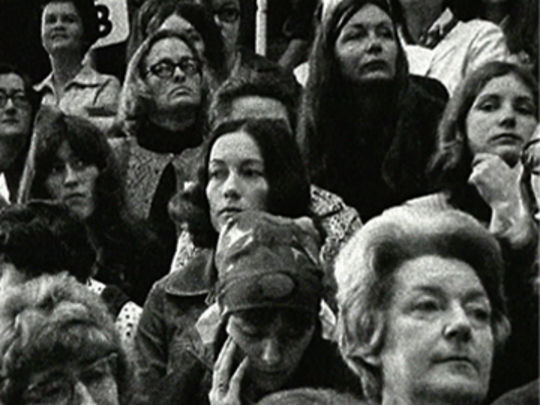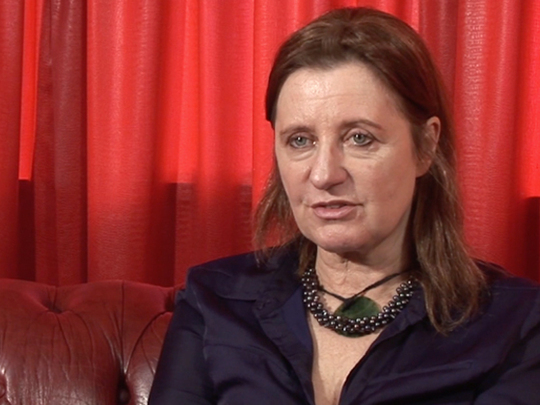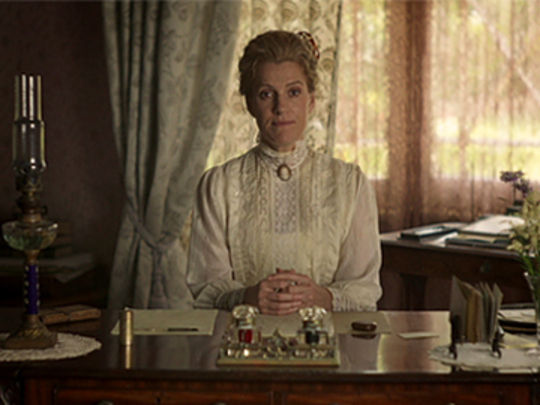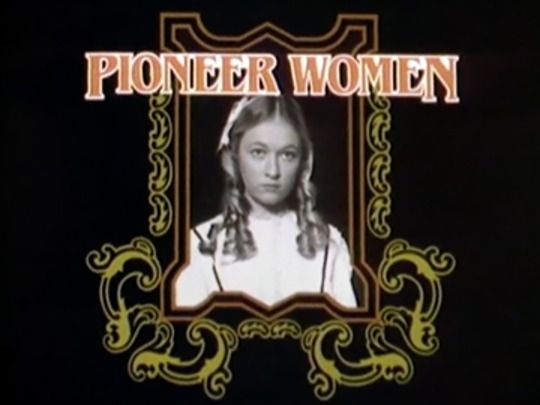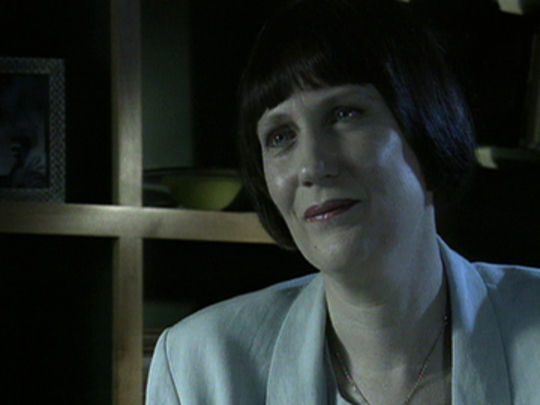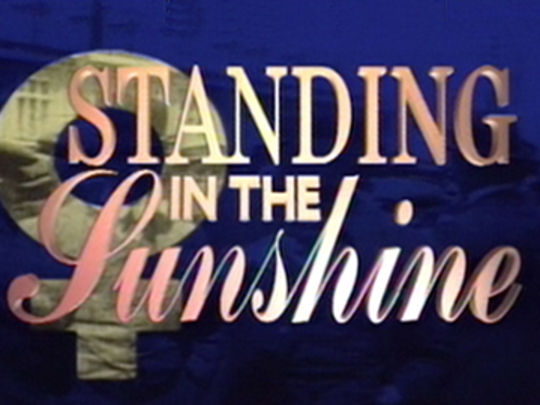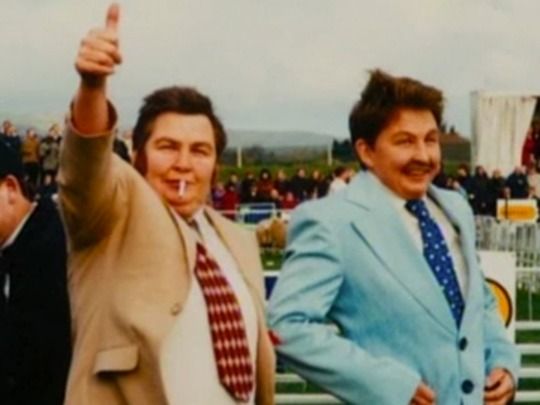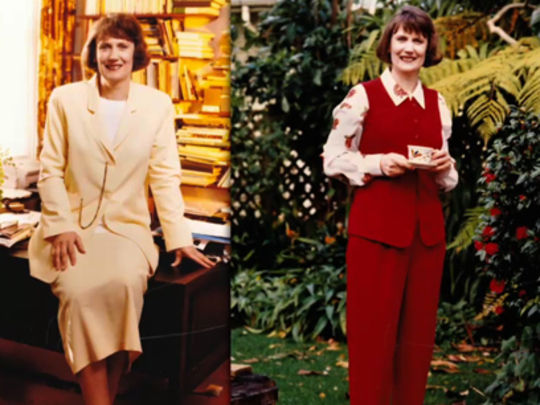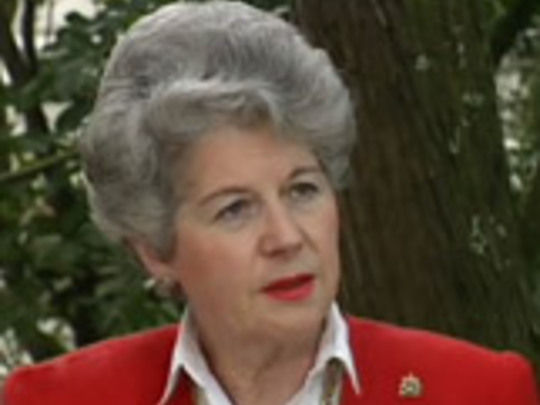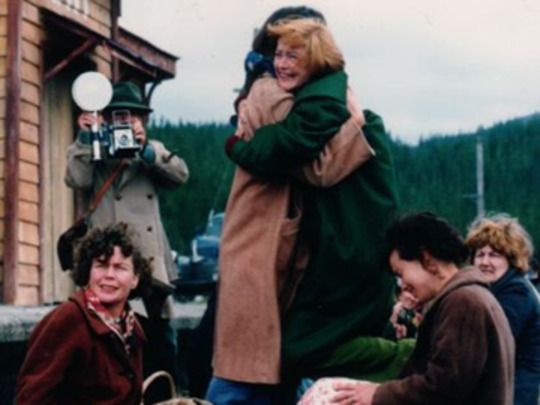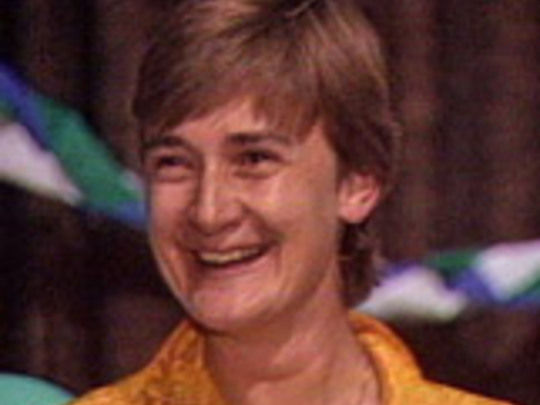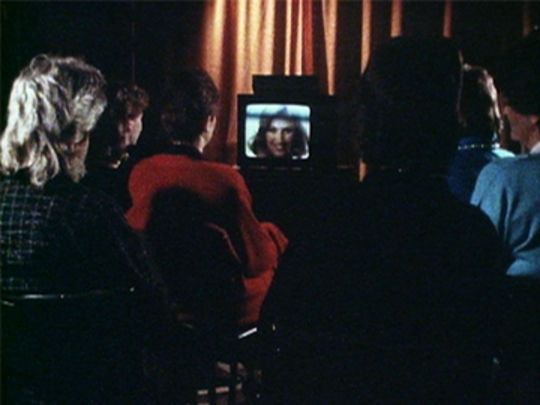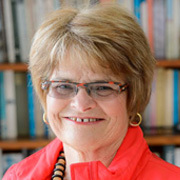Pioneering Women
A Badge to Wear with Pride
As a longtime feminist, journalist and filmmaker I’ve always been fascinated by the bad rap feminism gets. For as long as I’ve known what a feminist was, I’ve been proud to call myself one, and have never understood why feminism isn’t a badge to be worn with pride.
Pioneering Women is a fascinating online collection celebrating women and feminism in New Zealand — a must-see for women young and old who want to understand how we got to where we are today, and the fascinating turns and twists of the journey; the leaders who made it possible, the sung and unsung heroes. If you ever thought feminism was boring, irrelevant, or ‘not for you’, this might be a great place to understand what it is, and why it matters.
We reconnect with Kate Sheppard and other leaders of the suffrage movement, and learn about their vision, tactics and tenacity. Theirs was a 20 year campaign at a time when telephone systems were relatively new and still being established; where all correspondence was done by letter, where transport was limited and social attitudes often hostile, patronising and obnoxious. And still they collected over 32,000 signatures in the final petition that won New Zealand women the vote.
Some of our favourite and enduring characters are all there: Helen Clark, the Topp Twins, Sonja Davies, Dame Cath Tizard, Marilyn Waring, Germaine Greer, Janet Frame, Shona Laing, and Jean Batten. A blast from the Topp Twins — Untouchable Girls (2009) — with all its idiosyncratic, good time craziness, is not to be missed. Who else can motivate a packed opera house — all four tiers of it — to act the fool with such joy?
Dame Cath Moves Up (1990) links us up with New Zealand’s first woman Governor-General as she packs up her home and moves into Government House in Wellington. There she is in her black jeans and tidy shirt, helping the removal guys shift the clothesline so they can get things out the back door. She is so real, unpretentious, intelligent and funny. Later, as we pan along the corridors of Government House sucking up its magnificence, Dame Cath tells us she wants to find a little corner to install her microwave, so she can get up in the night and make a hot drink!
One of my favourites in the collection is Sheilas: 28 Years On (2004), co-directed by Annie Goldson and Dawn Hutchesson. The documentary features lesbian feminist author Sandi Hall, Māori activist Donna Awatere Huata, concrete worker and artist Miriam Cameron, sex therapist Aloma Parker and journalist Marcia Russell. They all update their lives, 28 years after appearing in landmark documentary series Women. This is a ‘goodie’ — surprising, memorable and moving. It’s fascinating to see the women change and evolve. Miriam Cameron (formerly Shadbolt) morphs from model to concrete worker and then on to artist — it’s a great story, very inspirational and testament to women being fully themselves.
There are other riches to be found in the longer programmes and series. Standing in the Sunshine – Work (1993) reflects the extraordinary work of Sandra Coney and her team, who were informed by her seminal book of the same name to create the film for the 100th anniversary of suffrage. So many amazing women and their equally engaging stories feature here: Ethel Benjamin, the first New Zealand woman to get a law degree; Dame Silvia Cartwright, who talks about how she got her first job and the boss commenting that she had “nice legs”; Périnne Moncrieff, who founded Forest & Bird in the 1920s; Human Rights Commissioner and champion squash player Dame Susan Devoy, who campaigned for equal prize money for women in sport; and Margaret Long, who worked tirelessly for equal pay – the list goes on.
Equally engaging is the award-winning Pioneer Women series (1983 — 1990). This was producer Pamela Meeking-Stewart's response to series like The Governor that hadn’t adequately recognised the role played by women in shaping the nation. Pioneer Women reveals the extraordinary contribution of people like Ettie Rout, Hera Ngoungou, Princess Te Puea, Nurse Maude, Elizabeth Colenso and Ellen Hewett.
The collection covers 125 years of our history, from the genesis of the suffrage movement in 1893 to the present. Featured are films, documentaries, dramatised documentaries and television series that traverse four decades — from a 1974 episode of Inquiry - Nothing Venture, Nothing Gain — to the trailer for Amanda Millar’s documentary on Celia Lashlie, which premiered in the 2018 NZ International Film Festival.
There are two things that make this collection a winner for me. The first is the character, courage and tenacity of our women leaders who feature; the other is the warp and weft, colour and complexity of the stories. Things move on but often the speed of change is glacial; the attitudes change, but for some they stay the same. Witness my alarmingly well-controlled self being interviewed by Lindsay Perigo back in 1986, on Sunday - Media Women. Knowing what I know now, I’m not sure I would’ve been as restrained today. Hopefully the tone and manner has changed! These days the person asking the questions would far more likely have been a woman. There are also more empathetic men in our ranks.
Another theme that runs through the collection is gender-based pay discrimination. OMG, this has been on the books for an insane length of time. The National Council of Women has been campaigning for it for 122 years, and passed its first remit on equal pay for equal work back in 1897! The early suffragists, who won the vote for Kiwi women 125 years ago, had it on the table then. Let’s hope subsequent titles added to the collection will reflect the work of people like Christine Bartlett and her successful campaign to achieve pay equity for lowly paid care workers.
I highly recommend this collection as place for us to understand and honour our past. This is a place to learn about our extraordinary foremothers and sisters, and the huge contribution they’ve all made. There’s no time to rest on our laurels; toxic content is now spreading like wildfire across the internet. The challenge for today is to link modern feminism with what has gone before — to tone down the academic language which has become alienating in feminist discussion, and make our arguments real and connected to everyday women in their everyday lives.
Dale Spender put it eloquently back in 1990: “Feminism has fought no wars. It has killed no opponents. It has set up no concentration camps, starved no enemies, practised no cruelties. Its battles have been for education, for the vote, for better working conditions, for safety in the streets, for child care, for social welfare, for rape crisis centres, women's refuges, reforms in the law. If someone says, 'Oh, I'm not a feminist', I ask, 'Why? What's your problem?”
- Allison Webber witnessed times of "enormous change, opportunity and expansion" after joining state television in 1973. She left TVNZ after directing and producing groundbreaking 1985 series Expressions of Sexuality. Since then Webber has made more documentaries, and worked extensively as a journalism tutor and media advisor.
